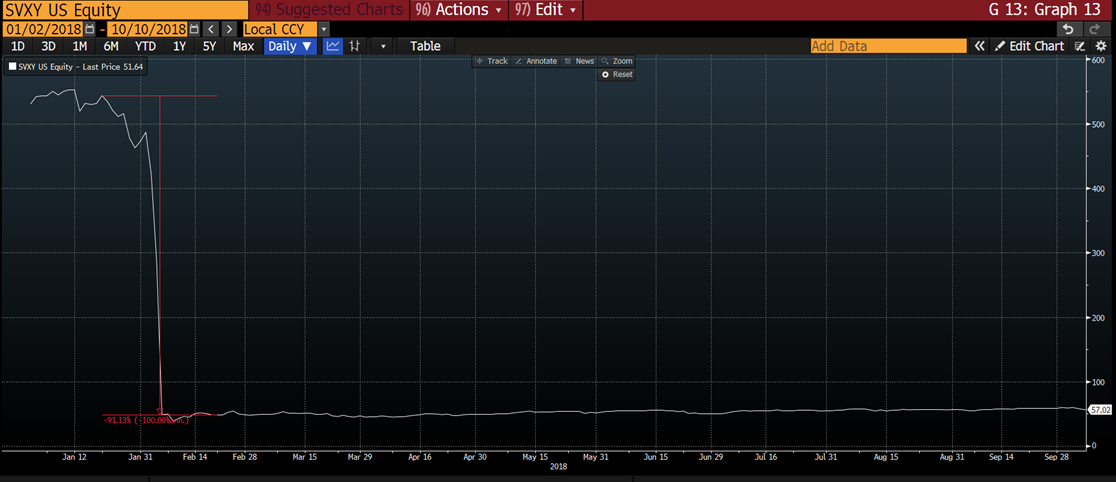By Kelvin Lee, Alonso Munoz
With 2-3% daily swings in markets this past quarter, the word “volatility” seems like an understatement. However, it’s been one the most consistent characterizations of this cycle, with equities, bonds and foreign exchanges seeing abnormal intraday price fluctuations. But investors don’t just see volatility, we measure it quantitatively. You’ve probably seen some references to this measurement; It’s the “VIX”, seen in its little box on every financial news network’s ticker tape.
What is the VIX? And why you should care…
The VIX is an index created by the Chicago Board Options Exchange that, by tracking S&P500 index options, generates a 30-day forward projection of volatility. Options are simply bets on the future price of something, and in the VIX’s case, that something is the S&P500. Because it constantly is calculated with real time option prices, it moves just like any other index does. In the investor community we often reference the VIX as “the fear index”, since the VIX tends to trend lower in up markets and spikes during crashes. It’s a useful metric to gauge market sentiment and short-term investor uncertainty. Here’s how we look at the number. The VIX below 20 indicates market stability and overall investor confidence. Long bull markets typically push the VIX into the low teens. From 20-28, we see a sign of elevated fears (since bets against the S&P500 are now pushing the number higher) and would expect more drastic price movements, but not full fledge panic. Above 28 to 40 shows heightened fear, and is a typical sign for a bear market. A VIX over 40 is usually an extreme or market crash. In scenarios like Covid or the 2008 collapse, we’ve seen the VIX climb north of 60. In our current environment, a VIX above 30 is typical as we are in a natural bear market and technical recession. If we view the VIX as a leading indicator to equity markets, since it moves inversely to the S&P500, we can make educated estimates on where the market will move in 30 days.
Although you can use sophisticated ETFs to trade the VIX, here is why you probably shouldn’t:
Let’s go back to January 31, 2018. No covid, no war in Ukraine, and no impending recession. In fact, markets were behaving so tranquil after a blowout 2017 that investors began “shorting” the VIX. So far, that trade had done well, with short VIX funds way in the green. Then, in February, the S&P500 fell sharply and the VIX climbed from 13 to 37. Subsequently, “short” VIX funds crashed 91%. The trade went from a meme victory to a complete bust. So why buy these funds in the first place? Due to their relative inverse relationship with equities, being long the VIX (expecting it go up) is equivalent to buying insurance against a market crash, while shorting the VIX is similar to selling market insurance. And like insurance, you tend to make a premium a bit at a time. But occasionally, you lose everything and have to “pay out” during panic events; see what happened to that short VIX fund back in 2018 in the graph below. In uncertain markets, financial pundits will come out of the woodworks to highlight sexy ideas and “for sure” investments. However, there are no sure things in the investment world, and sticking to a well thought out plan can help endure through these difficult markets.
As Mark Twain said “ It ain’t what you don’t know that gets you into trouble. It’s what you know for sure that just ain’t so.”

To contact the author of this story:
Kelvin Lee at kelvin@hamiltoncapllc.com
To contact the editor responsible for this story:
Alonso Munoz at alonso@hamiltoncapllc.com






